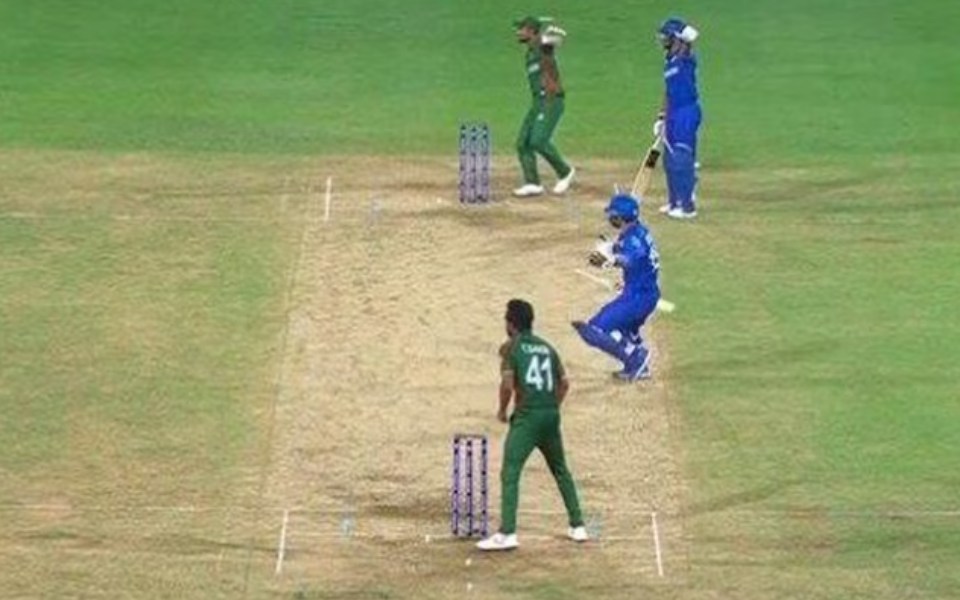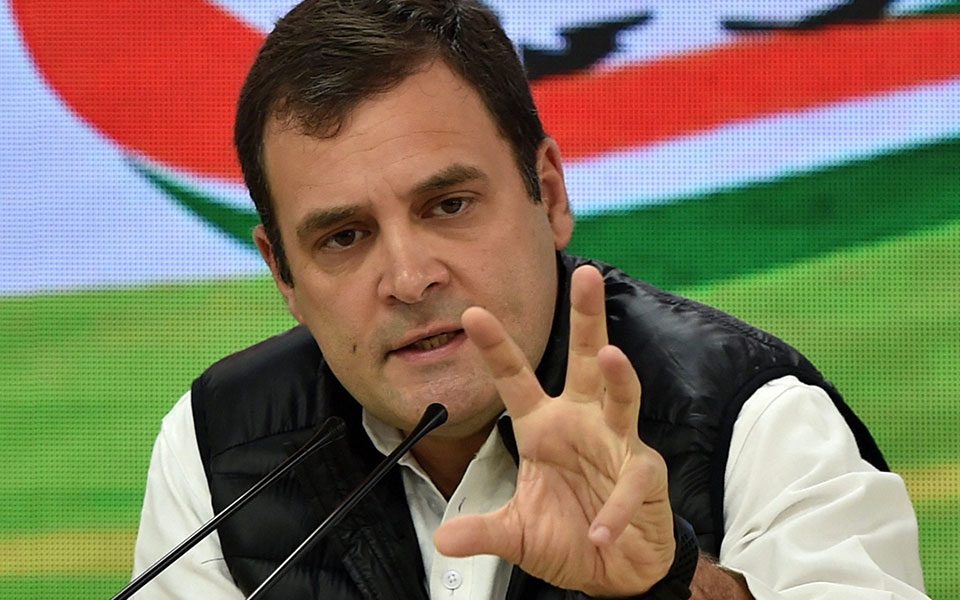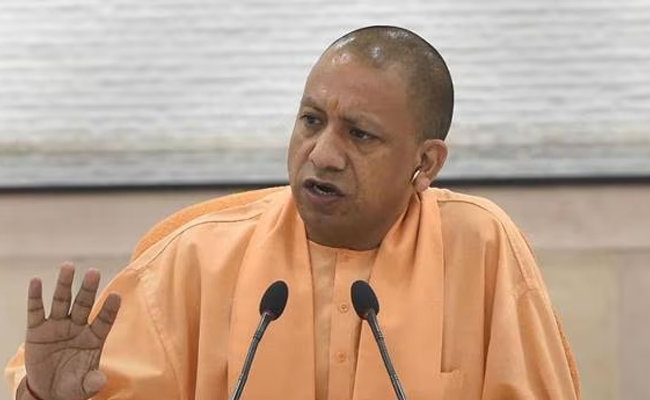Dubai, Jun 26: Afghanistan captain Rashid Khan has been handed an official reprimand by the ICC for throwing his bat on the ground in frustration after teammate Karim Janat refused a run during their T20 World Cup Super 8 clash against Bangladesh.
The incident occurred in the last over of Afghanistan's innings, when Rashid lost his cool after Janat refused a second run on a shot played by the skipper.
"Rashid was found to have breached Article 2.9 of the ICC Code of Conduct for Players and Player Support Personnel, which relates to throwing a ball (or any other item of cricket equipment) at or near a player in an inappropriate and/or dangerous manner during an international match," the ICC said in a release.
"In addition to this, one demerit point has been added to Rashid's disciplinary record, for whom it was the first offence in a 24-month period."
Rashid admitted the offence and accepted the sanction proposed by Richie Richardson of the Emirates Elite Panel of ICC Match Referees, so there was no need for a formal hearing.
On-field umpires Nitin Menon and Langton Rusere, third umpire Adrian Holdstock and fourth umpire Ahsan Raza levelled the charge.
Level 1 breaches carry a minimum penalty of an official reprimand, a maximum penalty of 50 per cent of a player's match fee, and one or two demerit points.
Afghanistan defeated Bangladesh by eight runs via DLS in the rain-hit match to qualify for the semifinals of the T20 World Cup, their first in any ICC event.
Afghanistan will face South Africa in the first semifinal in Tarouba, Trinidad.
Rashid Khan throws his bat in anger after his partner denied him the 2nd run in the final over.
— Swapnananda Jena (@Iam__sipp) June 25, 2024
This is what at stake when you play for a spot in semi's.
Scored 19*(10) in a 115 total & bowled match turning spell of 4-23-4#Afghan #CongratulationAustralia #T20WorldCup #BANvsAFG pic.twitter.com/hVi1Cf7qLe
Let the Truth be known. If you read VB and like VB, please be a VB Supporter and Help us deliver the Truth to one and all.
New Delhi (PTI): Congress leader Rahul Gandhi on Tuesday hit out at the government over the arrest of Youth Congress president Uday Bhanu Chib and other IYC members, saying it is reflective of "dictatorial tendencies and cowardice".
Gandhi said he is proud of his fellow members of the Youth Congress, who have fearlessly raised their voices in national interest against the "compromised PM".
In a post in Hindi on X, Gandhi said peaceful protest is the Congress' historical heritage.
"It is in our blood and a democratic right of every Indian," the Leader of Opposition in the Lok Sabha said.
Gandhi alleged that national interests have been compromised in the trade deal with the United States.
This agreement will harm our farmers and textile industry and hand over our data to the US, he claimed.
"The arrest of Youth Congress President Uday Bhanu Chib and other IYC members for exposing this truth to the nation is reflective of dictatorial tendencies and cowardice," Gandhi said.
"The Congress Party and I stand firmly with our fellow members. Showing the mirror of truth to power is not a crime, it is patriotism. Don't be afraid - the truth and the Constitution are with us," Gandhi said, using the hashtag 'I Stand With Youth Congress'.
Chib was arrested by Delhi Police in connection with the shirtless protest staged by a group of youth wing members at the AI Impact Summit here last week, officials said on Tuesday.
Police have also stepped up security across key locations in the capital in anticipation of possible protests following Chib's arrest, which took the total number of people held in the case to eight.
On Friday, a group of IYC workers staged a dramatic protest inside Hall No. 5 of the summit venue by removing their shirts to reveal T-shirts printed with slogans against the government and the India-US interim trade deal, before being whisked away by security personnel.
Police said the accused had registered online and obtained QR codes to gain entry into the venue.
The incident triggered a political slugfest, with the BJP calling it a "shameful act to tarnish India's image on the global stage", and the IYC defending it as a "peaceful" demonstration aimed at safeguarding national interests.





